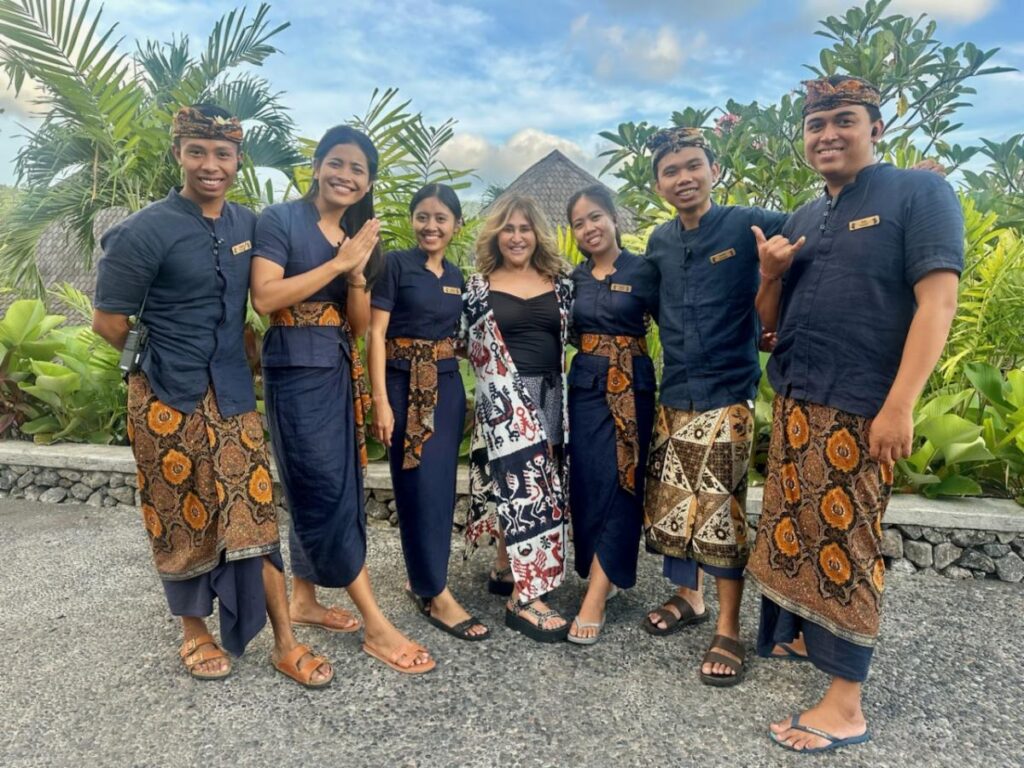- The Richness of Balinese Culture: The Balinese people are rich—not in monetary wealth but in virtually every other way imaginable. Faith and family are the pillars of their culture. I was struck by how everything centered around home and community. Every household is required by law to have a home temple (Bali is the only province in Indonesia whose primary religion is Hindu), and every town has its own temple, cemetery, and community center, all in one central location. Neighbors commune daily, pray together, and stay close to their ancestors. The emphasis on family and faith communicates a connection to the past, fosters a sense of security, and allows individuals to cultivate genuine generosity—a human characteristic reserved for the richest in spirit.
As I learned about Balinese culture, I was reminded of how our communities have changed over the four decades that I have lived and worked in Northeast Queens.
- Block parties… Gone.
- Kids playing in local parks past age 7 or 8? Gone.
- Worship with regularity? Next to gone.
I miss our Ice Cream Events. They were one-day-a-year celebrations of community. Even if that is the only reason neighborhood residents say they miss seeing my face on signs, I’ll take it. I know that the Ice Cream Event we sponsored, from 1997 to 2022, fed my soul and hopefully nourished yours. In hindsight, it was a little bit like the spirit of Bali.
- Cheerfulness as a Way of Life: People in the Balinese villages don’t argue; they don’t negotiate, and they don’t bargain. The Balinese in less populated areas, like the ones I visited, believe in cheerfulness as a way of life—including in business. They don’t compartmentalize to justify actions; they just live by a solid set of values that permeates every facet of their life. Their refusal to bargain back and forth for gain, so common in Western culture and among countries with a tourism economy, helps the Balinese workers reduce stress while actually gaining financially. Like many other foreigners I met, I was so humbled by the generosity and reasonableness of cab drivers, restaurant staff, artists, yoga teachers, etc., that I felt compelled to offer more money or tip more heavily. Everyone was so damn nice!
Lesson for the Rest of Us: It dawned on me over the course of almost 40 years that the clients who were nice; the sellers who refused to overprice and the buyers that did not want to underpay—with little exception—were the ones who really won. Smart sellers benefited from bidding wars; nice buyers won the war. I am reminded of Deepak Chopra’s book, The Seven Spiritual Laws of Success, specifically Law #4: The Law of Least Effort, which suggests “do less and accomplish more.” The Balinese people believe that their land and the nature around them are holy. They trust nature’s intelligence and their place in it. They don’t waste their energy trying to make things happen or manipulate situations or people. They use love and acceptance, and they let go of the outcome. As I mentioned earlier, the Balinese workers’ belief system benefits their stress level. Thus, in 2019, Bali had the highest life expectancy, for males, in Indonesia on average— of 74.4 years. Not bad for a country that many call developing. I would argue that in ways that truly matter, Bali’s development is to be envied by the rest of us.
Bali taught me:
- Before you ask for anything, make sure that you are thankful for everything.
- True wealth is not measured by our bank account.
- Our home expands way beyond the roof above our heads. It encompasses a higher power much bigger than ourselves.
The Balinese thank their gods—a trilogy of the Hindu gods—for everything. They always ask their gods for forgiveness and, only afterward, do they ask for help or blessings. They are singularly guided by love and appreciation. This reverence extends to their homes and families, and even their pets. Most Balinese families own a dog, not as a house pet, but as a trusted guard dog. Practicing Hindus believe in reincarnation, and it’s said that dogs were thieves in a past life. So, when they return to Earth, their penance is to protect their household from the sort of criminals they were before reincarnation. It follows the rule: “It takes one to know one.”
In Bali, there was a curiosity about America, especially New York, but no one I met expressed a desire to leave their homeland. They were grateful for their skies, their land, and the people who came before them, as well as those who would follow. Maybe that’s why they felt so rich—they never felt alone.
We could learn a thing or two.
